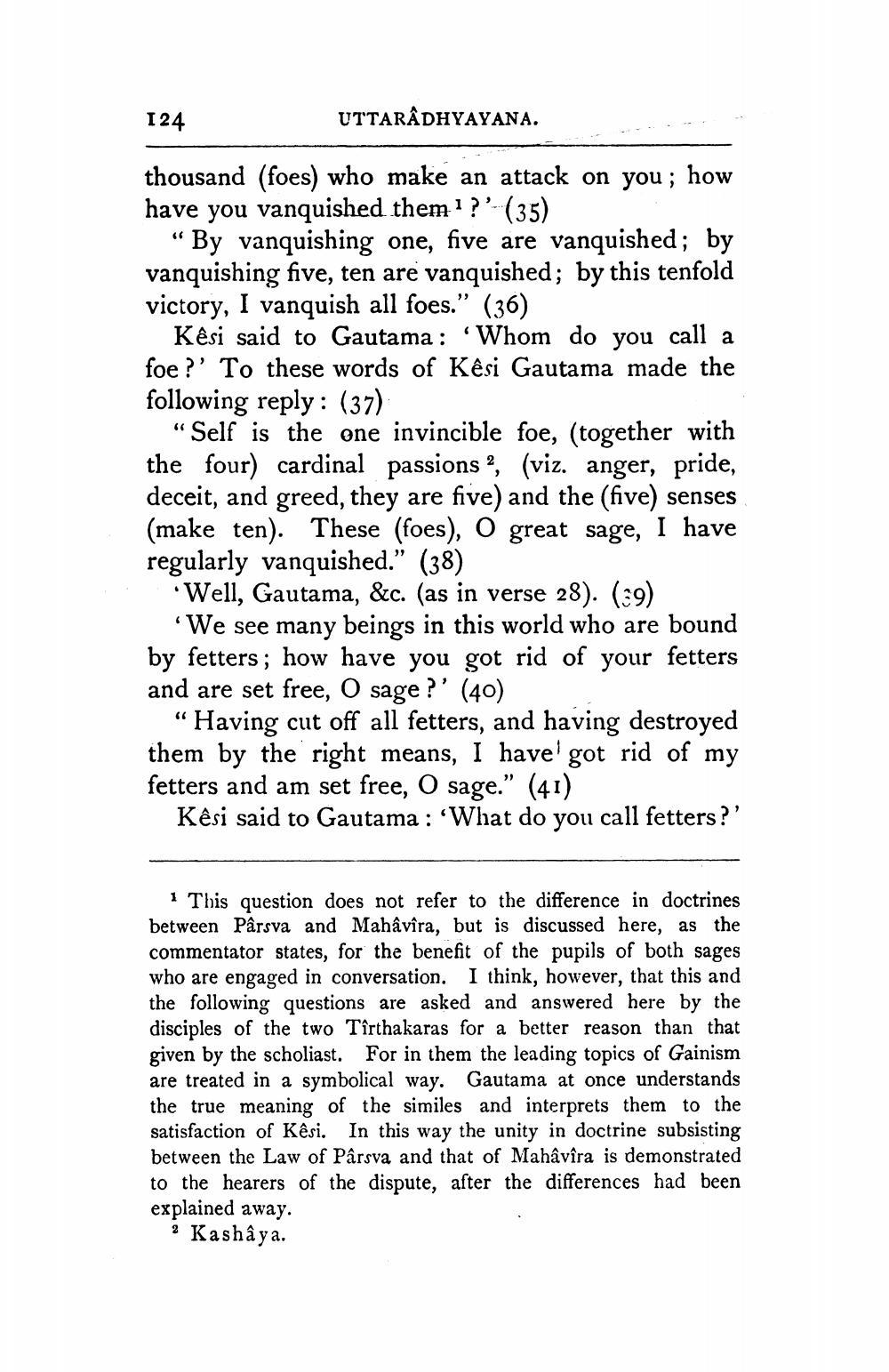________________
124
UTTARADHYAYANA.
thousand (foes) who make an attack on you; how have you vanquished them 1?' (35)
1
"By vanquishing one, five are vanquished; by vanquishing five, ten are vanquished; by this tenfold victory, I vanquish all foes." (36)
Kêsi said to Gautama: 'Whom do you call a foe?' To these words of Kêsi Gautama made the following reply: (37)
"Self is the one invincible foe, (together with the four) cardinal passions 2, (viz. anger, pride, deceit, and greed, they are five) and the (five) senses (make ten). These (foes), O great sage, I have regularly vanquished." (38)
'Well, Gautama, &c. (as in verse 28). (39)
'We see many beings in this world who are bound by fetters; how have you got rid of your fetters and are set free, O sage?' (40)
""
Having cut off all fetters, and having destroyed them by the right means, I have got rid of my fetters and am set free, O sage." (41)
Kêsi said to Gautama: 'What do you call fetters?'
This question does not refer to the difference in doctrines between Pârsva and Mahâvîra, but is discussed here, as the commentator states, for the benefit of the pupils of both sages who are engaged in conversation. I think, however, that this and the following questions are asked and answered here by the disciples of the two Tîrthakaras for a better reason than that given by the scholiast. For in them the leading topics of Gainism are treated in a symbolical way. Gautama at once understands the true meaning of the similes and interprets them to the satisfaction of Kêsi. In this way the unity in doctrine subsisting between the Law of Pârsva and that of Mahâvîra is demonstrated to the hearers of the dispute, after the differences had been explained away. Kashaya.
2




